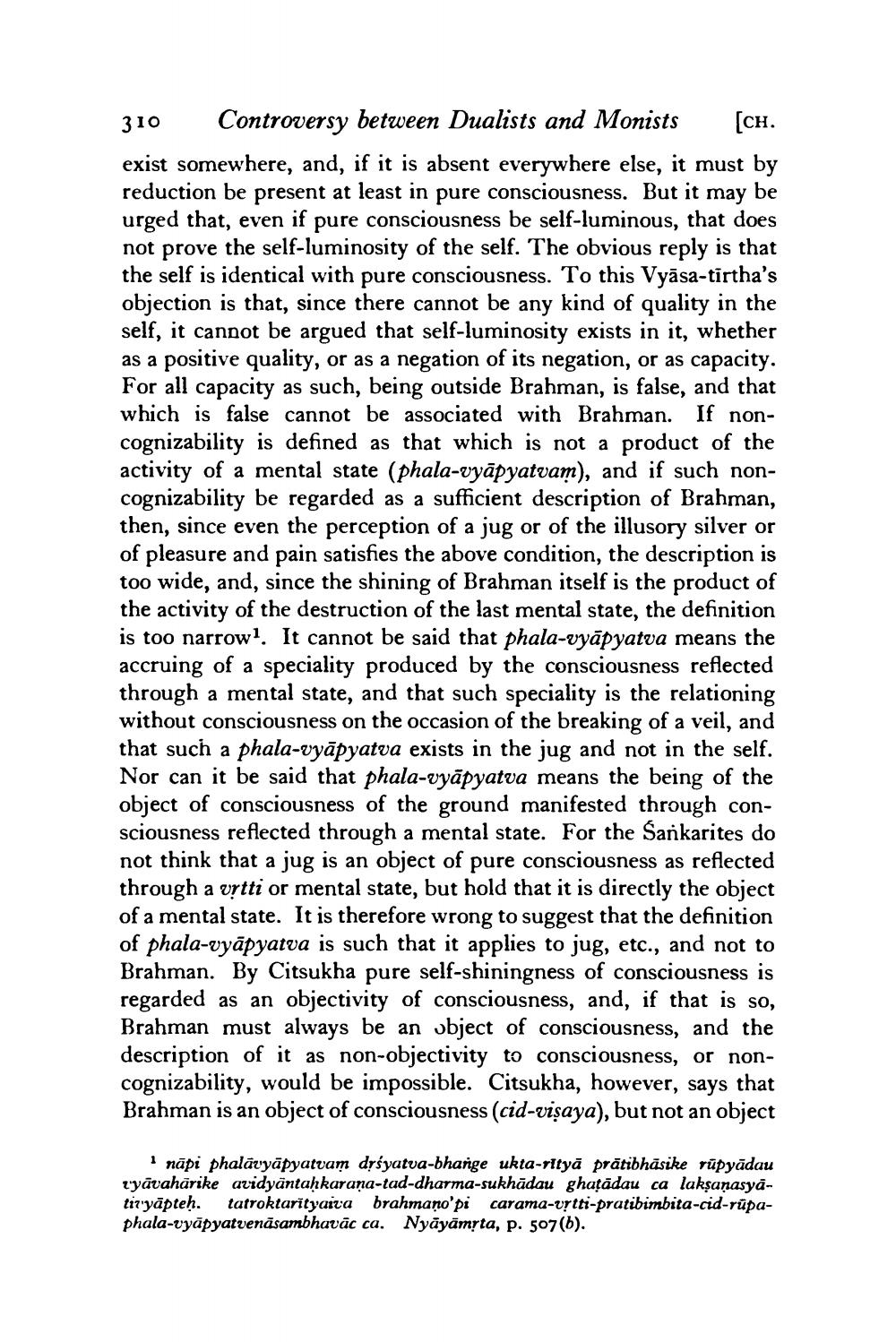________________
310 Controversy between Dualists and Monists [CH. exist somewhere, and, if it is absent everywhere else, it must by reduction be present at least in pure consciousness. But it may be urged that, even if pure consciousness be self-luminous, that does not prove the self-luminosity of the self. The obvious reply is that the self is identical with pure consciousness. To this Vyāsa-tīrtha's objection is that, since there cannot be any kind of quality in the self, it cannot be argued that self-luminosity exists in it, whether as a positive quality, or as a negation of its negation, or as capacity. For all capacity as such, being outside Brahman, is false, and that which is false cannot be associated with Brahman. If noncognizability is defined as that which is not a product of the activity of a mental state (phala-vyāpyatvam), and if such noncognizability be regarded as a sufficient description of Brahman, then, since even the perception of a jug or of the illusory silver or of pleasure and pain satisfies the above condition, the description is too wide, and, since the shining of Brahman itself is the product of the activity of the destruction of the last mental state, the definition is too narrowl. It cannot be said that phala-vyāpyatva means the accruing of a speciality produced by the consciousness reflected through a mental state, and that such speciality is the relationing without consciousness on the occasion of the breaking of a veil, and that such a phala-vyāpyatva exists in the jug and not in the self. Nor can it be said that phala-vyāpyatva means the being of the object of consciousness of the ground manifested through consciousness reflected through a mental state. For the Sankarites do not think that a jug is an object of pure consciousness as reflected through a vrtti or mental state, but hold that it is directly the object of a mental state. It is therefore wrong to suggest that the definition of phala-vyāpyatva is such that it applies to jug, etc., and not to Brahman. By Citsukha pure self-shiningness of consciousness is regarded as an objectivity of consciousness, and, if that is so, Brahman must always be an object of consciousness, and the description of it as non-objectivity to consciousness, or noncognizability, would be impossible. Citsukha, however, says that Brahman is an object of consciousness (cid-visaya), but not an object
ināpi phalāvyāpyatvam drśyatva-bhange ukta-rityā prātibhāsike rūpyādau tyāvahārike avidyāntahkarana-tad-dharma-sukhādau ghatādau ca laksanasyatir'yāpteh. tatroktarityaiva brahmano'pi carama-urtti-pratibimbita-cid-rüpaphala-vyāpyatvenāsambhavāc ca. Nyāyāmsta, p. 507(6).




